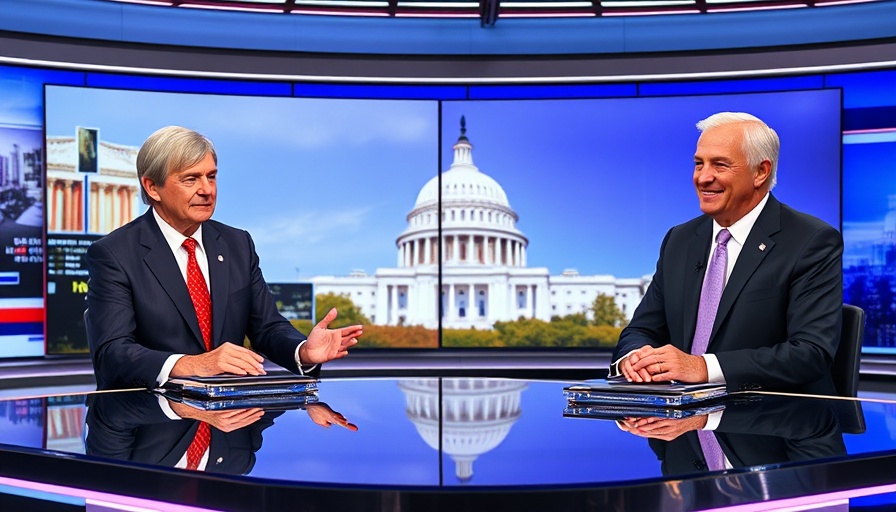
Understanding the Controversy Surrounding Judge Boseberg
In the recent discourse surrounding President Trump's immigration policies, a significant issue has emerged concerning Judge James Boseberg, whose rulings have sparked considerable debate among conservatives. Chairman Jim Jordan of the House Judiciary Committee suggests that Boseberg's decisions, particularly regarding deportation flights, reflect more than legal reasoning—they suggest a political bias. This raises important questions not only about judicial integrity but also about the balance of power within our government.
In 'Chairman Jordan on Rogue Judges', the discussion dives into Judge Boseberg's controversial rulings, exploring key insights that sparked deeper analysis on our end.
The Political Implications of Judicial Decisions
Jordan's claims hinge on the decision made by Judge Boseberg to halt deportation flights, a move deemed alarming by many supporters of Trump's immigration agenda. The essence of the debate centers on whether his actions align with the constitutional powers vested in the presidency. When a judge issues rulings perceived as politically charged, it prompts discussions about the role of the judiciary in relation to the executive branch and its policies.
A Call for Congressional Oversight
With the growing concern over perceived political bias in judicial rulings, Jordan stated that the Judiciary Committee is committed to investigating these matters. This includes analyzing various injunctions that he argues reflect a pattern of judicial overreach. The optics of this approach suggest a need for checks and balances as it relates to judges wielding considerable influence over executive actions.
The Broader Context of Judicial Authority
This conflict is emblematic of the ongoing struggle over judicial authority versus executive power in America. With judges making decisions that can effectively overturn policy decisions made by duly elected officials, conservatives are increasingly advocating for reforms. These reforms could safeguard the integrity of the law while protecting executive prerogatives—a central feature of what they deem a healthy democracy.
Your Role in Shaping the Future
As individuals engaging in the political sphere, conservatives are urged to voice their concerns and take an active role in supporting legislation that maintains a balance of power. The conversation around Judge Boseberg is a call to action—to ensure that judicial decisions reflect the law, free from political influence.
In this era of ongoing political tension, it's essential to stay informed and engaged to preserve our democratic principles. Whether through supporting candidates who champion conservative values or participating in community discussions about judicial practices, your voice matters.
By recognizing the importance of maintaining fairness and accountability in judicial appointments, we can collectively work towards a government that truly reflects the will and values of the American people.
 Add Row
Add Row  Add
Add 




 Add Row
Add Row  Add
Add 

Write A Comment